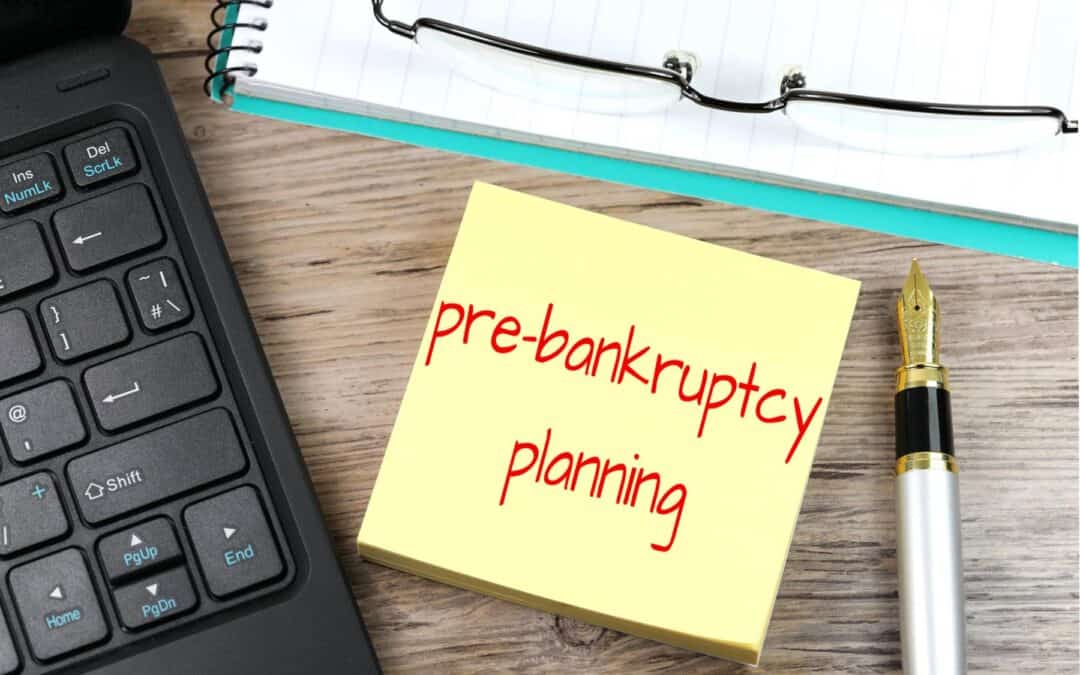When individual debtors are involved in bankruptcy cases, pre-bankruptcy planning is critical. The goal is usually to establish a strategy and create an atmosphere that will maximize the likelihood of a successful bankruptcy. Typically, this is attempting to obtain as many exclusions as possible. However, if handled poorly, a debtor’s exemption claims and even the right to discharge may be jeopardized.
Because bankruptcy – whether Chapter 7 or Chapter 13 – is such a convoluted and intimidating procedure, it is usually in a debtor’s best advantage to get legal guidance as soon as possible. This way, your lawyer can also assist you throughout the pre-bankruptcy stage.
Examining Your Finances
Your lawyer will examine your finances to see if you would be better off filing for Chapter 7 or Chapter 13 bankruptcy. If you’re planning to file for Chapter 13 in the near future, you might want to use the money you have to pay off debts that won’t be erased by the bankruptcy. You may, for example, apply your credit card payments to your mortgage or auto loan. Before you cease making any of these payments, though, make sure you’re filing for bankruptcy.
What About Your Personal Property?
It’s critical to review your assets at this point. While determining which assets are exempt and which are not, you must also consider whether you are comfortable with what you may be able to keep and what you may have to give up. This might apply to your car as well as your home.
If you’ve previously paid off a significant portion of your mortgage and have equity in your house that exceeds the exemption threshold, you might want to seek a non-bankruptcy option to achieve the debt relief you need. This could entail paying off some of your debt and repaying the rest using specifically designed repayment arrangements.
Providing Current and Accurate Information
You have enough time during the pre-bankruptcy planning stage to gather all of your financial facts as accurately as possible. You must behave in good faith throughout your bankruptcy procedures, and it is never a smart idea to provide false information or try to conceal key facts. Keep all of your tax returns on hand in case they’re needed to determine your income. As a result, you’ll be able to tell if you’re eligible to apply for bankruptcy.
What You Must Avoid
While you may be tempted to take steps that appear to be beneficial during your bankruptcy procedures, there are several actions you should avoid at all costs.
Attempts to Hide Assets
Transferring your assets, like as your home, car, or certificates of deposits, to family members in the hopes of hiding them from the trustee handling your case is never a wise option, no matter how tempting it may appear. Not only may your case be dismissed, but you could also be charged with a crime and sentenced to prison.
Taking Out a Loan Against Your House
Borrowing money against your home to pay off credit card debt or personal loans is a bad choice because you’re converting unsecured debt to secured debt. You may lose your home if you are unable to make timely repayments on your home equity line of credit (HELOC). In terms of bankruptcy, the updated homestead exemption in California allows you to claim up to $600,000 in your home as exempt, depending on the county in which you live and the median sale price of your home.
Taking on New Debt
Don’t use unsecured credit to buy large-ticket purchases right before filing for bankruptcy, expecting that your obligations will be forgiven. Expect your judge to carefully examine all of your debts to determine which ones can and cannot be forgiven.
Withdrawing from a 401(k) or an Individual Retirement Account (IRA)
The money in your retirement plan may be totally shielded from your bankruptcy in California. As a result, you should not consider withdrawing funds from your retirement plan, 401(k), or IRA to pay off current debt until you have spoken with an attorney about your situation.
Conclusion
Pre-bankruptcy planning can make all the difference in the outcome of your bankruptcy case, which is why you should speak with a bankruptcy attorney as soon as possible. Then, with the assistance of your attorney, you can make the most of current California bankruptcy exclusions in a fully legal manner.

